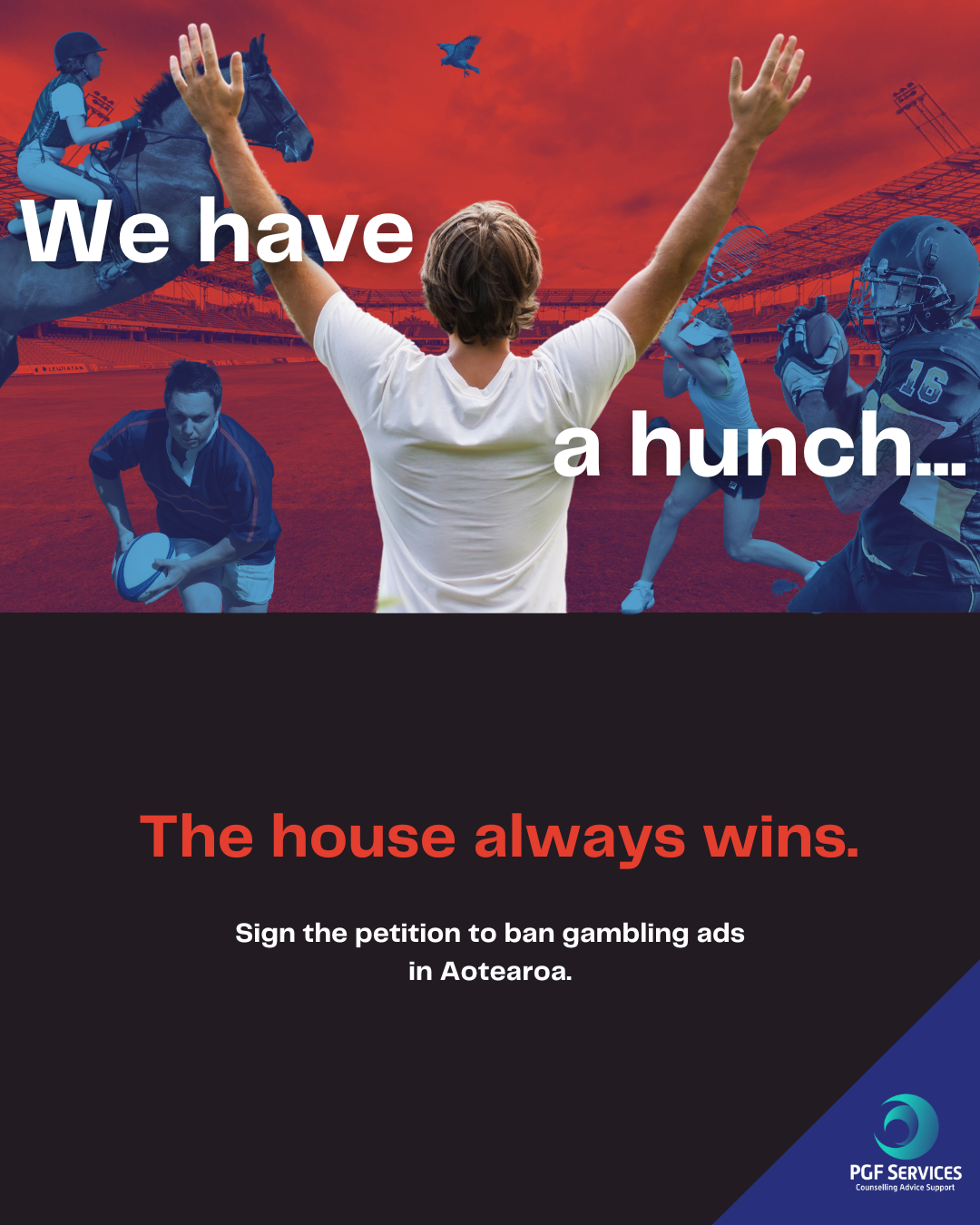
The trouble of problem gambling
An organisation dealing with fallout of gambling addictions is warning east Aucklanders about ads it claims prey on the vulnerable during hard economic times.
At a recent community networking meeting in Pakuranga, the Problem Gambling Foundation (PGF) said it started a national petition because of “growing unease about the lack of regulation for gambling advertising and sheer volume of ads people are exposed to”.
The petition commenced during Gambling Harm Awareness Week, says PGF spokesperson, Andree Froude.
“There’s been a dramatic surge in gambling advertising across media channels. It has sparked concern by several gambling harm support services and members of the public about the potential impact, particularly on young people,” she says.
“When times are tough, gambling often increases rather than decreases.”
More than $1 billion a year is inserted in pokie machines in communities across the country including east Auckland, although that excludes machines in casinos, according to PGF figures.
There are 18 venues in the Howick ward with 297 pokies/electronic gaming machines.
In 2023, $34,113,809 was spent in them by gamblers.
“Online gambling has increased, particularly since the Covid lockdowns with bank transaction data supporting this.”
Froude says Kiwibank said in 2022 its customers were spending around $30 million a month gambling online and 80 per cent was on offshore gambling sites.
“That’s only one bank and we know many banks are now offering customers the option to block gambling sites.”
Public health experts have said gambling ads pose significant risk to children and young people, she says.
“We don’t want to see a situation like Australia where three out of four kids now think gambling is a normal part of sport.
“Marketing has a significant impact on the normalisation of gambling for youth. This has included shaping positive attitudes towards gambling, as well as increasing the social and cultural acceptance of gambling, particularly aligned with valued activities such as sport.”
Froude points to one betting agency that has been “aggressively advertising over recent months”, promoting sports betting and offering sign-up inducements to encourage gambling.
“The Government has also announced its intention to operate a licensing system for up to 15 online casinos, with licensed operators permitted to advertise with ‘strict limits’.
“When this comes into effect in 2026, it will contribute to a significant increase in gambling advertising.
“The cumulative impact of the advertising activity of 15 new online casino operators in a new market with the existing marketing will have a saturation effect, despite any restrictions that might be imposed.”
Froude says it’s difficult to quantify how addictive gambling is impacting Kiwi households because of social stigma.
Sometimes people don’t want to admit the problem until literally all the money has been bet.
“It’s a real barrier to help-seeking. About one in five people experience harm as a result of their own gambling or someone else’s, and Māori, Pacific, Asian and young people are at greater risk,” she says.

“We haven’t yet seen the impact of online gambling. The environment changes so rapidly and with the increase there will definitely be an increase in harm.”
The PGF gets referrals from other community organisations helping people with gambling addictions.
“Harm usually doesn’t happen in isolation. Often there are mental health or other addictions impacting someone’s life, so we meet people where they’re at and provide support with access to other services if required.”
Froude says the PGF believes the Gambling Act (2003) is “no longer fit for purpose”.
“It doesn’t mention online gambling. The unregulated offshore online gambling market has grown significantly, with higher participation, higher spend, and greater harm being reported by New Zealanders.”
- If you or anyone you know is wanting help in addressing an addiction to gambling, the Problem Gambling Foundation can be contacted on free phone 0800 664 262, text 5819, or email [email protected]
